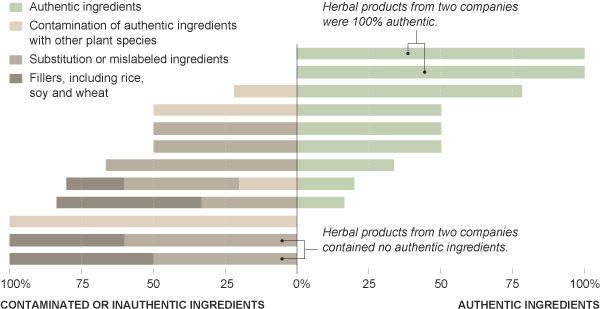The problem with the investigation, Cohen said, is that the test officials used to analyze the supplements — called DNA barcoding — is not proven to work well in identifying whether a particular botanical ingredient is in a supplement or not.
That's because
DNA barcoding looks for a specific fragment of DNA, but the ingredients in herbal supplements are often highly processed — crushed, dissolved, filtered and dried — so that they may no longer contain the particular fragment of DNA that researchers are searching for, making the supplement appear to be mislabeled, Cohen said. But the products could still contain some biological compounds from the original plant.
Danica Harbaugh Reynaud, CEO of AuthenTechnologies, a company that does identification tests to look for the plant species found in herbal supplements and other products, agreed. "My suspicion is that inappropriate methods were used to assess these products, leading to some false-negative results," Reynaud told Live Science. "A lack of DNA ... is not necessarily indicative" of a mislabeled supplement, she said.
Damon Little, associate curator of bioinformatics at the New York Botanical Garden, said that some herbal supplements — particularly plant extracts — contain very little DNA. "In the extreme case, you more or less won't find any DNA in that extract at all," Little told Live Science.
For example, some raw materials for herbal supplements are extracted using solvents, including oil. But DNA does not dissolve in oil, Little said, so when the company takes off this oil layer, none of the DNA would come along he said, meaning the DNA would not end up in the final product that consumers buy.

